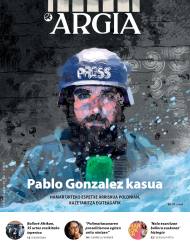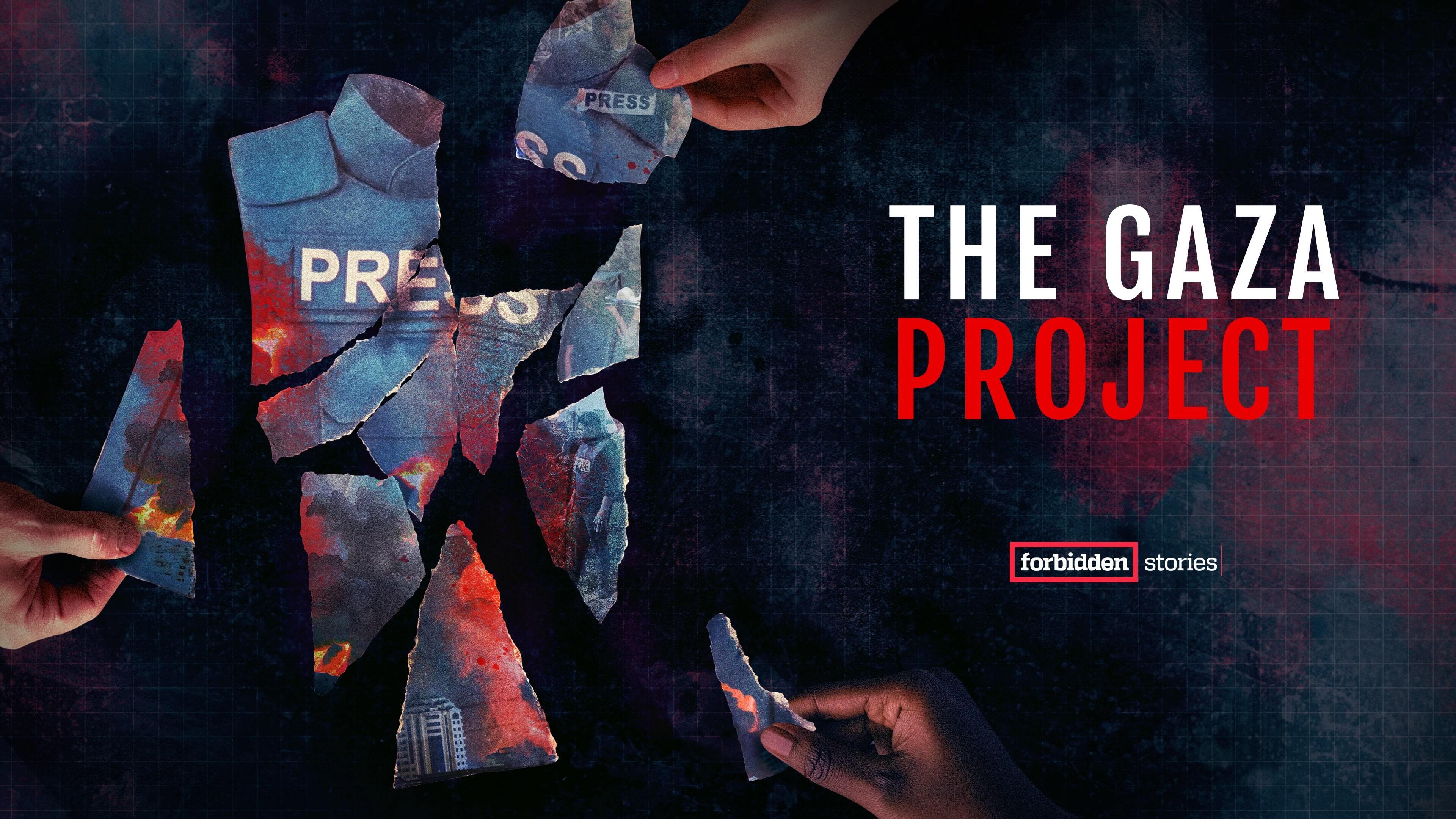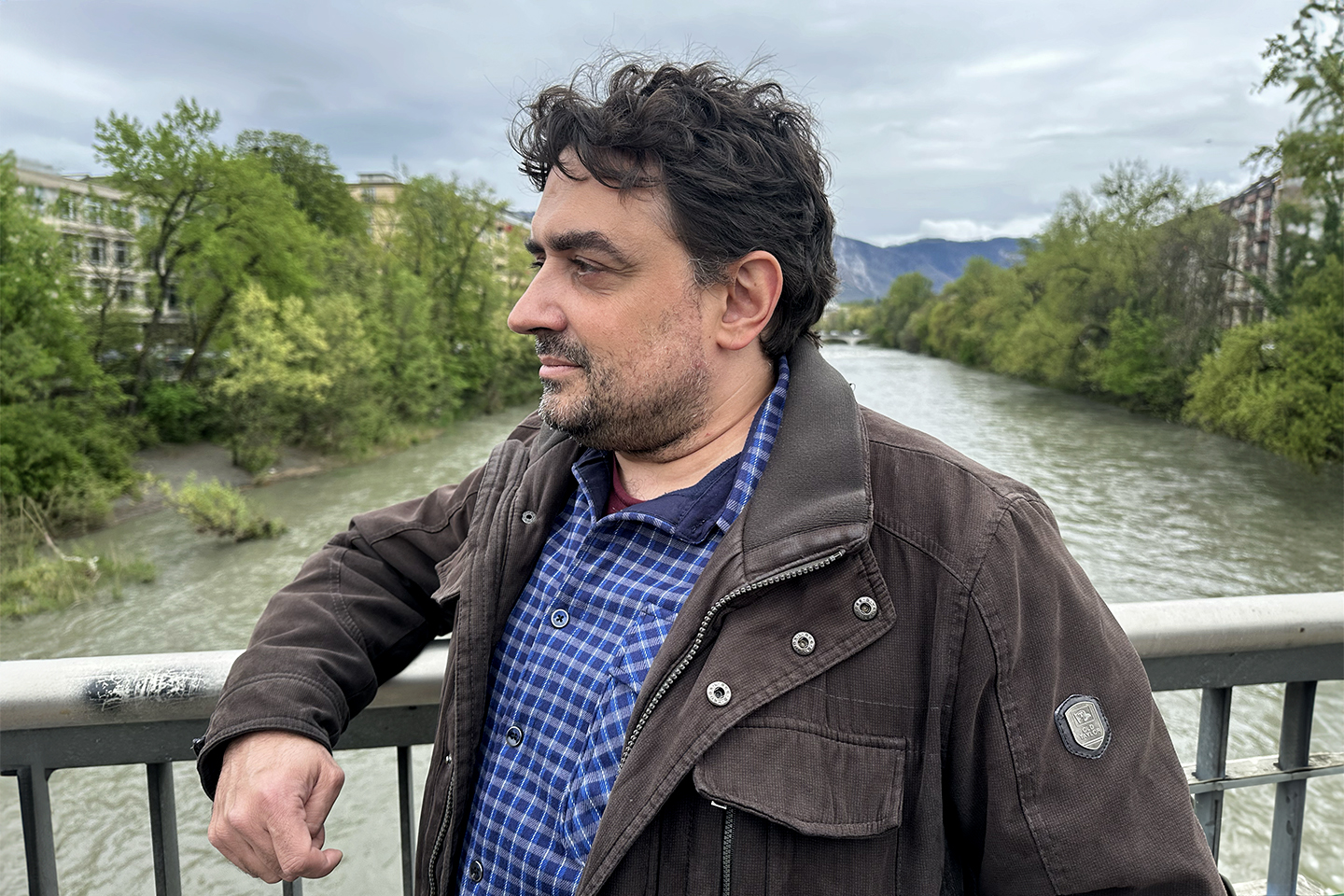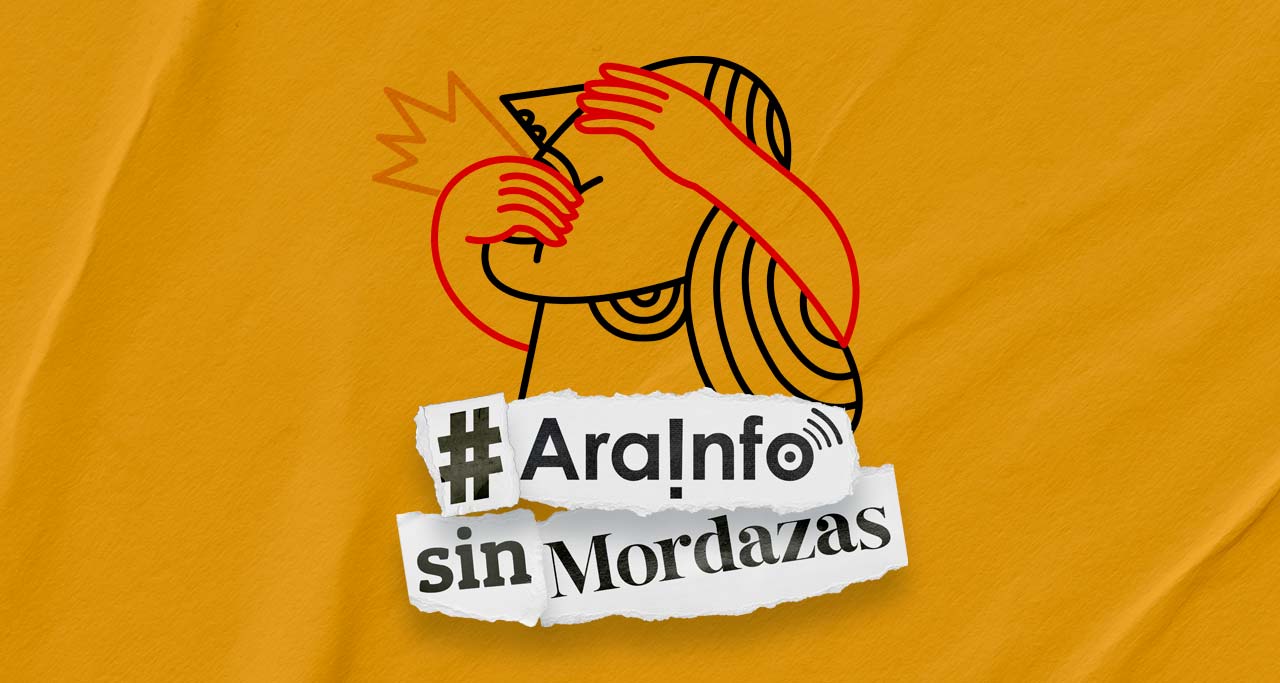Caught by the perfect storm
- Journalist Pablo González has been detained in Poland for almost three months. On 29 May, the accused provisional prison of Russian spy ends, and no specific date for the trial has yet been reported. It is played with ten years' imprisonment. In the meantime, Poland has violated many rights which, as a member of the European Union, it should respect, among others, in order to contact its family or a trusted lawyer. Report that reconstructs identity and what Paul or Pavel has had, as they know it in their country.
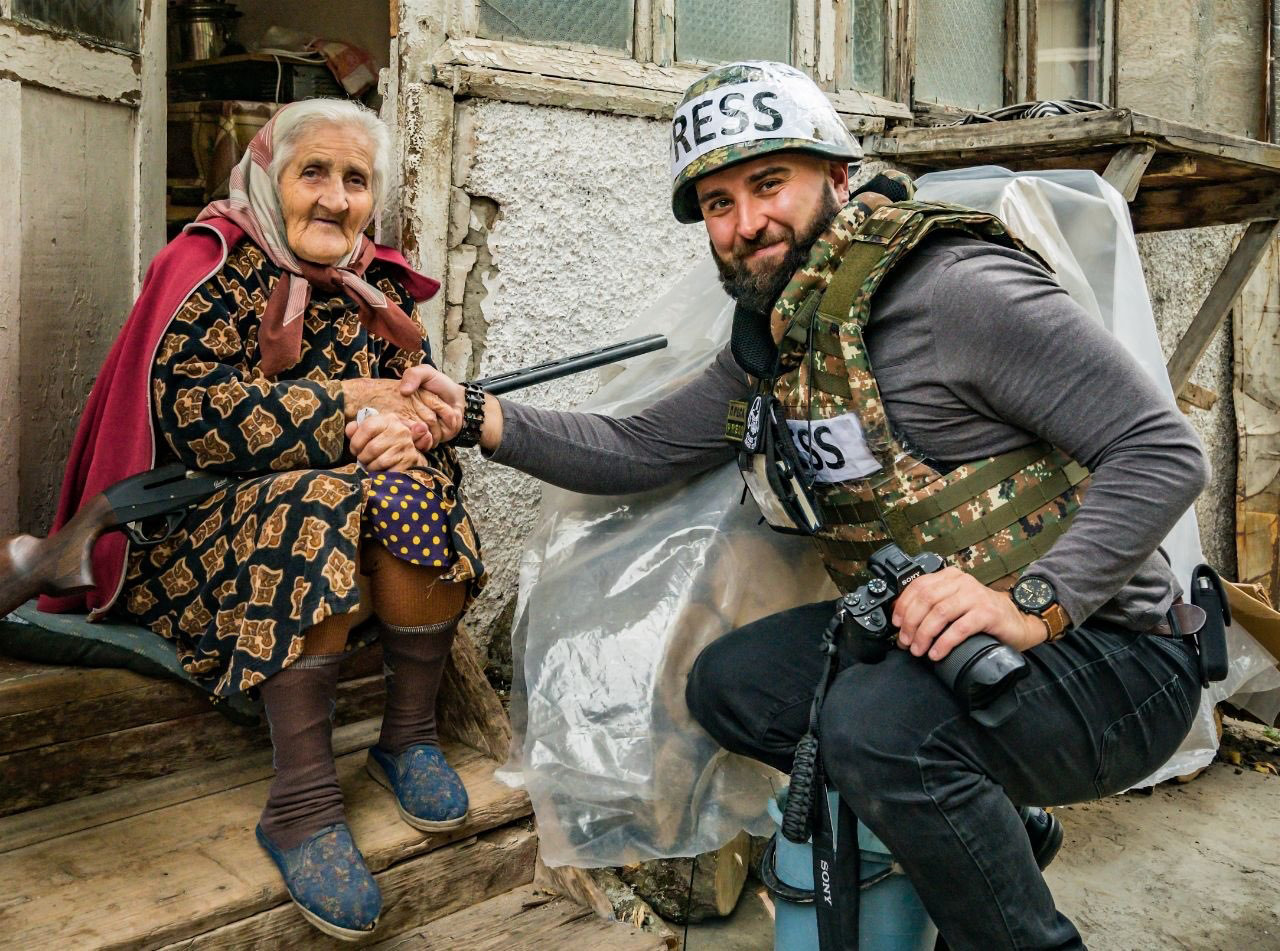
"I'm not a war journalist, although I stay with many of them. I'm an informer of a particular area. If there's war in that area, I'm going to treat war, but if there's no war there, I'm not going to go to another war, no matter how much I know about planes, drones, tanks, etc. Why? Because I don't contribute anything. If you don't speak the language, if you don't know the story... Why go to war? Just for war? Do you have adrenaline rush? I don’t defend that.”
Pablo Gonzalez Yagüe, a journalist who is currently ruined in Poland, speaks. In September last year they published their statements in the short documentary Living the War, an excellent job to know how this person thinks. His grandfather was one of the thousands of children sent from the Basque Country in the 1936 war to the Soviet Union. His mother was born there and Paul, in Moscow, 40 years ago. She currently lives in Nabarniz (Bizkaia), is married and has three children. He studied Eslava Philology at the University of Barcelona and began to enter the world of journalism after the multimedia master of El Correo in 2010. He is currently preparing his doctoral thesis in polylogy at the UPV. He speaks Russian, Polish, Spanish, English and Catalan and includes Basque.
“I have decided to be my specialization Central Europe, Eastern Europe, Balkans, post-Soviet space and Caucasia. I understand that area, no more. My main job is to understand and explain. You have to explain something, but if you don't understand it, we're doing wrong. The next thing is my opinion, but I think it's widespread in the trade, especially among those in the old school: journalism is an exercise between training people and explaining things. You can't explain some things if you don't have people in basic information format before. If you don't explain who A is and why you carry X in that place, you can't explain why you've risen up against B, what your relationship with B, why you're C, why you're looking at D... To perform this analysis, first of all, you must know,” he said in the audiovisual mentioned.
Seeking light in the war in Ukraine
“Kemen, adventurer and aspiring to a career in international journalism, joined us – his colleague, the photojournalist Juan Teixeira, has written a powerful testimony in favor of González’s innocence on the Eulixe website, Sobre Pablo González and the diminishing press, about Pablo González and the press freedom that is being reduced. In the last decade we have been in many places, always in Eastern Europe. In addition, shortly after the start, there was a coup in Ukraine in 2014. Despite being new to many, this sad conflict has caused 13,000 deaths in eight years and we have visited this country together on six occasions.”

He has worked as a freelance journalist in the following countries, mainly Gara, Público and La Sexta: Ukraine, Georgia, Armenia, Azerbaijan, Nagorno Karabakh, Belarus, Poland, Iran, Syria, Israel, Palestine, Lithuania, Latvia, Estonia, Kosovo... always reporting on their own and according to their criticisms.
"The war in Ukraine has caused 13,000 deaths in eight years and we've been there six times together." Juan Teixeira photojournalist
In August 2016 DCLeaks.com filtered 2,576 internal founding documents powered by the magnate George Soros worldwide. In one of the filtered reports (see the document here), journalists Marta Ter and Nicolás de Pedro produced a "list of opinion makers in favour of Russia on the one hand and Ukraine on the other." There appeared Pablo González, for the first time defined as “Russian”. His friends think he was included in that list because he didn't obey the official story, and that, freely, using different contacts, he made another story in the Donbass war.
By 2022, let us remember that we began the year with a growing clash between NATO and Russia, initially dialectical, taking Ukraine as the epicenter. The United States had been saying for months that the Russian invasion was going to be immediate – then III. Biden came to talk about the possibility of the World War. So, at the end of January, González and Teixeira decided to go back there to see firsthand to what extent they were saying.
At that time, González publicly stated his position against the possible Russian invasion, with yours written on 22 January: “I’ll get wet: there is no war. Those who say otherwise at least encourage people to die. All kinds of justifications, I'm sorry to say, are nonsense. Russia’s penetration into Ukraine is not. NATO To get more into Ukraine, no. No war!”
Despite the sounds of war, logic and geopolitical experts said that Russia would not invade Ukraine. That for the Putin there had been a suicidal movement, that for Europe the only people who were interested were the United States. This was what people of all kinds interviewed there thought, and this was publicly manifested in numerous direct connections in the Sixth. But they were wrong.
Start of contingencies
The Spanish Sixth started to get complicated in a connection to the television network. Teixeira account: “We were east of Ukraine, in a town called Avdeevka, just miles from the front. With the permission of the Ukrainian military, we went to the center of the village to tell what the lives of the citizens who lived so close to the front line were like. At the end, Paul decided to live with the military behind him, because he is always more visible on television. From La Sexta they waited 45 minutes under the snow. The military, becoming more and more nervous, asked what lightning struck that bald stand, with the mobile over a tripod.” In the end, the military got upset, erased all the material, photographed González's passport and expelled him.

That same night he received a call from the secret services of Ukraine, informing him that to go to his headquarters as soon as possible. “Although we had work to do, we returned to Kiev. There they questioned Paul for four hours accusing him of being a Russian agent with the following strong evidence: Editorial for Gara and credit card for Laboral Kutxa, funded by Russia. It was so crazy that Paul didn't take it very seriously. He believed that the screws were tightened to measure the words in his journalistic work.” Knowledge of Russian and knowledge of the environment also surprised the secret service, as González explained. Finally, in three days he was “invited” to leave Ukraine without a formal expulsion order.
However, he soon found that at that time the Spanish secret service was asking in his family house of Euskal Herria, in his mother and on the floor of Catalonia of a friend of youth, and that González was a salaried agent of Russia. They decided to end the continuation immediately and leave the country for their safety.
González, surprised
“With the same question they appeared in everyone’s houses. They told them that I'm an agent of the Russian secret services, of military intelligence or something like that, to see if someone was suspicious, to see if they knew something, that they knew. They all responded that they didn't know what they were talking about, to see what they believed. That my origin is Russian? Yes. We have all been and there (...). There is no secret. (…) Do I manage a lot of money? Well, right, you can look at my current account. Do I get help from my old man ever? Well, yeah. It has two apartments for rent in Moscow and it gives me my share. But these are very small amounts. I have a car 15 years ago and the only money I spend is to buy work tools. Everything seems silly to me.”
I was surprised and angry. When he came home he sent a friend as audio that message from above, which has then been published by the newspaper Público.
He was in Nabarniz's house and during these weeks he was not contacted again. Meanwhile, in addition, there was a news bomb: on 24 February Russia began the invasion of Ukraine, a country that was so familiar becoming world news. “Although Paul was not sure, he decided to travel to Poland. He thought after being investigated they would realize he had nothing to hide,” says Teixeira. “Gonzalez had indications that he was drinking something fat, he knew that the Ukrainian and Spanish secret services were suspicious of him. And yet, he went to work, confusing in a certain cocktail his indifference, necessity, feeling of innocence and faith in good professional work”. On this occasion he travelled to Poland, an informative focus on the war exodus.
Will the reader recall that when the Russian attack began, among many other reports, it was reported that Poland did not allow non-white refugees to enter its country? What the paradoxes consist of, with his journalism work González took his face that night to stop him and violate his rights. On this tweet of February 27, he said three photos attached.
“Some reports say that Poland does not allow non-white citizens travelling through Ukraine. That is NOT true. The border is open to everyone! These are the Nigerians, the African students and the inhabitants of Bangladesh. They have all left Ukraine behind.”

That night, a few hours in the morning, he was arrested by the elite team of the intelligence services of that country, accusing him of being Russian spy, so the storm hit him.
Numerous violations of fundamental rights
28 February. 7:00 in the morning. The phone of Oihana Goiriena sounds – the interview we have made here with her – and on the other hand her husband’s voice says he is detained in the city of Rzeszów, at the headquarters of the secret services. That's all right, and it takes four hours. Since then almost three months have not been able to speak again and González has not been able to defend himself before the public. He is completely incommunicado, only the consul of Spain and a lawyer who has been proposed to him by acquaintances speak with him. The consul says that González clearly says he is innocent.
"What do I meet a lot of people? Politicians, political scientists...
fuck, that is journalism”, Pablo González
“They want to see ghosts where they are not – González said in his audio message to his friend. They want to win asterisks and pluses saying they've disarticulated something important. So tell me what secrets I've been looking for, where I've come in. At least one example. And it's also the opposite: I've always been away from that kind of thing, step by, I don't need it, my materials are sold. What do I meet a lot of people? Politicians, political scientists -- fuck, that's journalism. In that sense, I don’t know what they will invent, it’s ridiculous.”
The only official information that has been made public is a warning from the Government of Poland, a few days after being arrested, in which they say that Article 130 of the Polish Penal Code has been applied to him and that he may be sentenced to prison for up to ten years, but that, for the time being, he has been given a provisional prison.
Misunderstanding with personality?
In Poland ' s official letter to the family, the journalist was quoted as Pavel Rubtsov and Aleksei Rubtsov. Family members explain to the press that González's last name in the Russian passport and his father are, respectively. In fact, when he separated his parents, the name of Pablo González was given – translation of the Russian name Pavel and his mother’s last name – but they did not change in the Russian documentation.
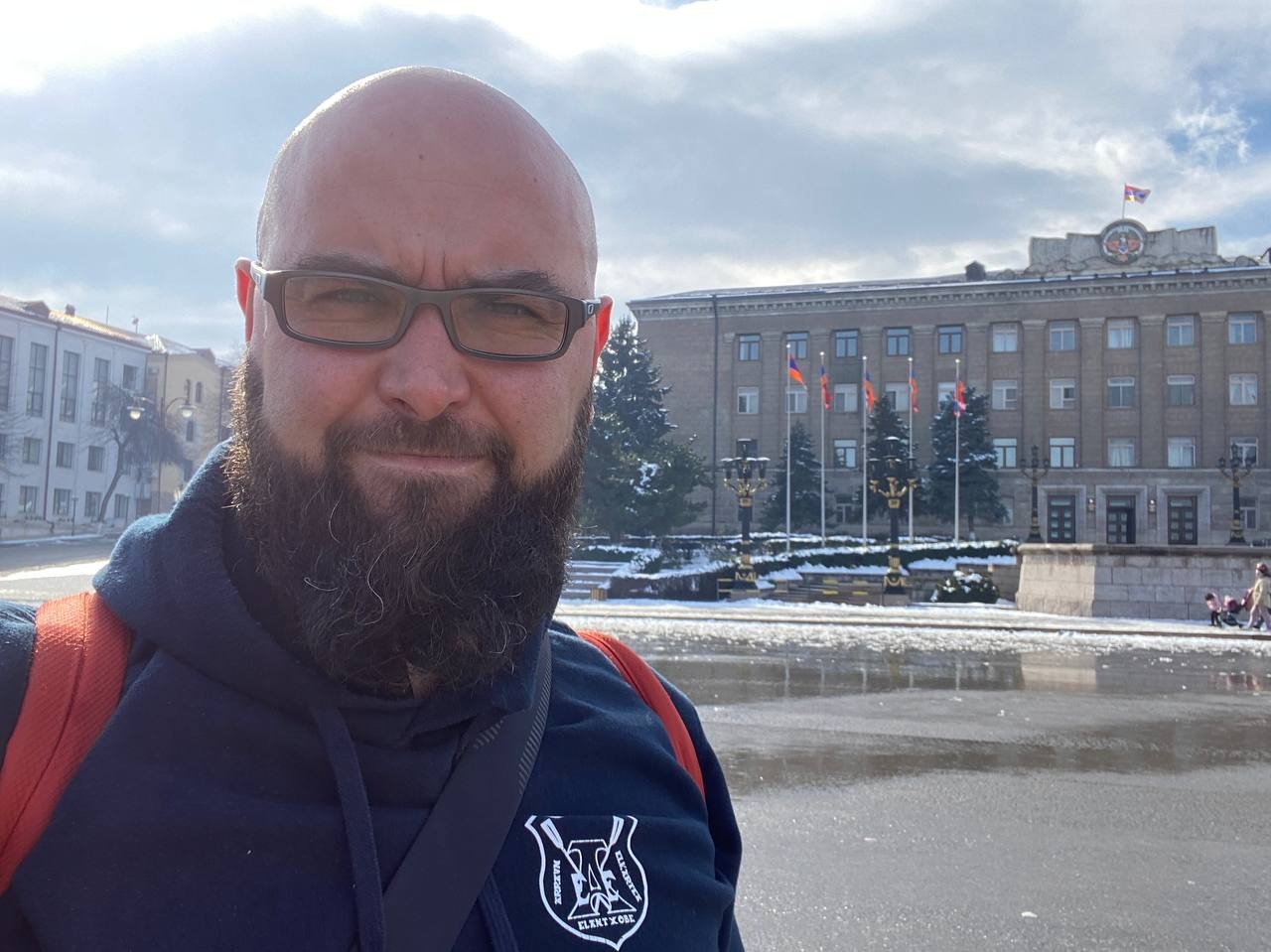
Teixeira denounces in his article that, amid the pain of the first days, media such as El Correo y La Voz de Galicia published the lie saying that González was captured with fake passports. To explain this case, Attorney Boye says that they have submitted all the documentation and have sent it with an affidavit translation, delivered by the City of Getxo.
Family members and friends of the journalist report that in the European Union this is an unprecedented case and that the evidence that Poland opposes it is “absolutely circumstantial”, all of them related to its Russian origin. They also criticise the Spanish Government’s position, “allowing Poland to breach the European Union’s Charter of Fundamental Rights, contravening 18 articles, even if this document is binding on EU countries”.
Awkward journalist
“We are now all at a standstill with Ukraine, people who are refugees in the underground and problems arising from the conflict. The conflict in Karabakh broke out a year and a half ago and most did not listen to it. It was smaller in scale, but in spite of everything disturbing. It was much more violent, less considerate everywhere. I was there monitoring, as I am following this and perhaps others will follow in the future. And actually, this double morality fascinates me, forgives the trick." This was said last year in the documentary Living War, as the next statement.

“You are visiting [at war]. That's not yours. You've come there, you've seen it and you come. You will send messages to your friends, relatives, etc. you have somewhere else, you'll report what your football or basketball team or your favorite musical group has done, etc. Life continues. You are aware that it is not your reality and that you are not there, so to speak, to fight. Many days you hear activist journalism, etc. It will try to take it as best as possible. The key is to see things in perspective. In war, things are exaggerated and we must try to ensure that things are taken according to their present value. For example, a piece of iron that has been flying from heaven destroys that house and kills a person. You will report on it, you will explain what has happened and you will continue to move forward. It cannot be given more or less importance. And then you'll see that the world is moving forward, that the world doesn't care what's happened, and that all those people you've met, or the people who have died or are still fighting, the world doesn't care a little bit. You have to face it and try not to get too angry with the world, because it is not the fault of the world that life goes on.”
He wrote the following a few days before he was arrested on social media. “There are plenty of photographs of prisoners and deaths in this conflict. I'm not going to publish either, either. They're people, some of them were, and they have families. They are also victims. If it is not of great importance or informative interest, I will try not to publish it."
“Paul was undoubtedly an awkward witness in Ukraine,” says his colleague Teixeira, because he had decided to learn without any filter, with great knowledge, honesty and ethics. That is what this nightmare has set in motion.”
See if it ends at once.
Free Pablo González Campaign
Gonzalez’s arrest has caused malaise in the press sector, and hundreds of Basque journalists, including ARGIA osoa or Berria, many journalists from the Spanish State, the European Federation of Journalists or Journalists Without Borders, have asked to clarify what happened and to release immediately. Amnesty International also calls for respect for the right to relate to his family and for a fair trial.
Here is the profile of the Free Pablo Gonzalez Twitter campaign.
Osasun artak biltzen ari da Pablo Gonzalez Moskun une honetan. Joan den astean, Poloniako Radomgo segurtasun handiko espetxetik atera zen kazetaria bi urte eta bost hilabeteko preso egon ondoan. Poloniak leporatzen zion espioitza frogatu gabe libre atera da.









